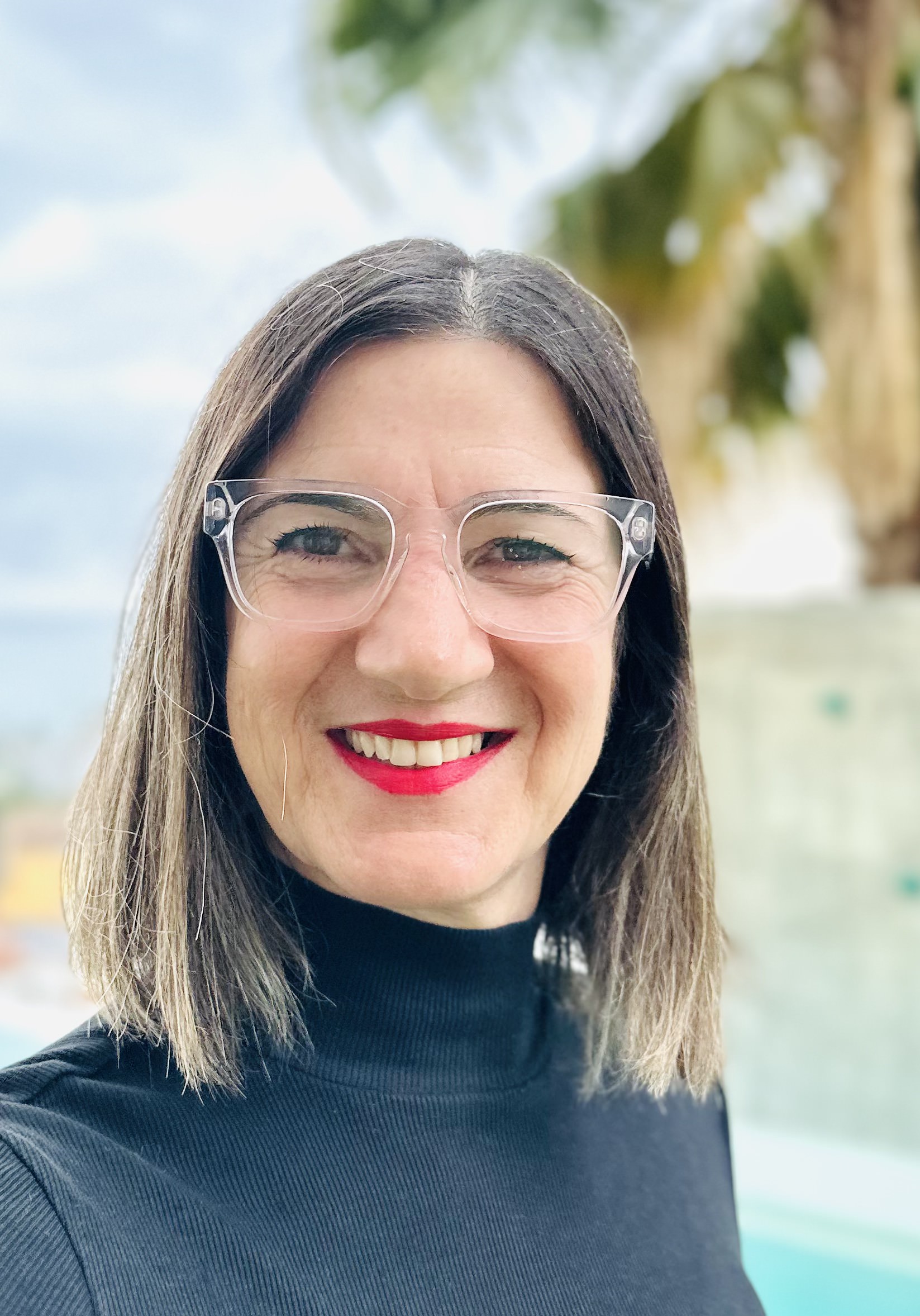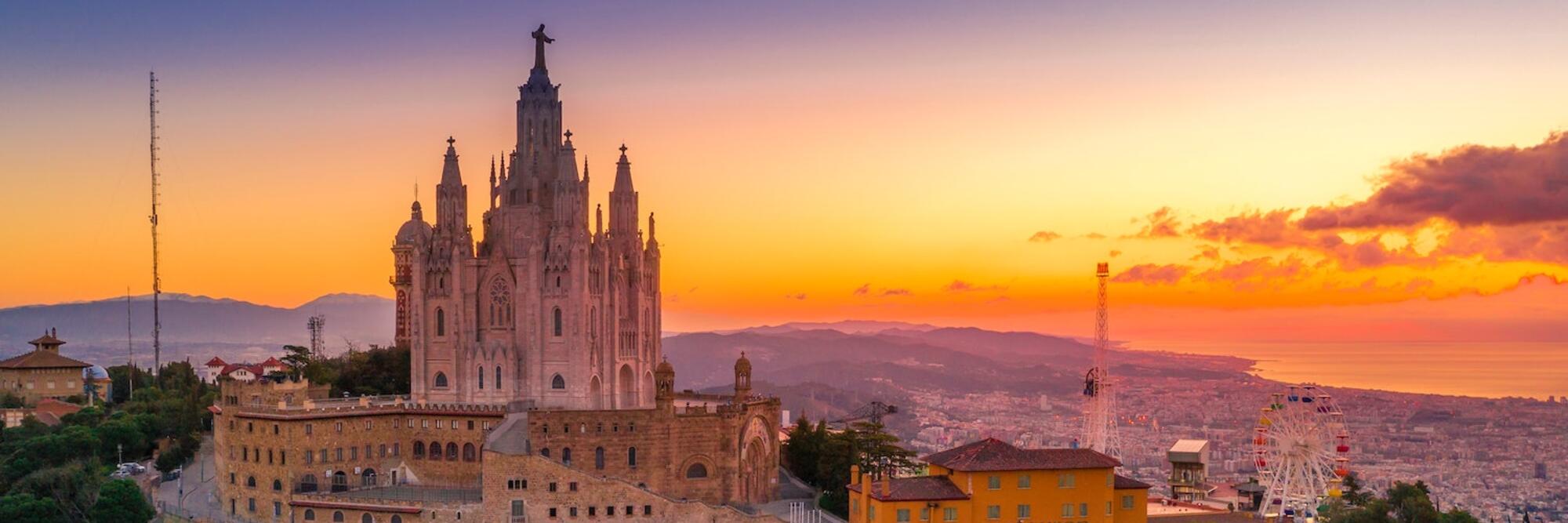Doris is a lifelong expat who has lived in more than 15 countries since her early 20s. She has two degrees in translation and interpreting and spent 15 years working in localisation and talent management. Today, she helps bold families, couples, and individuals to holistically prepare for their relocation abroad to jump-start their journey into becoming digital nomads.
To learn more about Doris’s relocation coaching services, check out Cardario Travel. You can also keep up with her adventures on Instagram and Facebook.
About Doris

Q: Where are you originally from?
A: I am originally from the Dolomites in South Tyrol (Northern Italy)
Q: What country and city did you move to?
A: Over the past 25 years, I have moved 19 times. Eight of these have been together with my three children.
Q: When did you move?
A: My first move was in my early 20s.
Q: Is this your first expat experience?
A: No, I have relocated 19 times in total.
Q: Did you move here alone or with a spouse/partner or family?
A: For the past 15 years, we have been moving every two to three years as a family of five.
Q: Reason for moving?
A: Our priority as a family is to offer our children a diverse education and to raise them as global citizens. Over the past 15 years, they have had the privilege of experiencing seven different school systems. By immersing locally into each country, culture and language, they now speak five languages.
Living abroad
Q: What do you enjoy most about your host city and your new country of residence in general?
A: The most exciting part about a move to a new location is to start from zero. To learn things from the bottom up, to find our way round, to explore where to shop, play, learn and socialise.
Q: Have you had any low points? What do you miss most about home?
A: There is usually a low point at about three months into the move. It’s when the initial excitement wears off, when adrenaline levels stabilise, and you start questioning whether this was the right move. So now we generally make sure to plan something exciting around that time, be that a special weekend away, or friends and family visiting or a deep dive into local sights or experiences. Snow is what I miss most about home, so I embrace this craving rather than suppress it and spend some weeks snowboarding each year.
Q: What misconceptions have you had when moving abroad, if any, have you learned were untrue?
A: I believe most misconceptions are untrue and are generally seen from an ‘us vs. them’ point of view. I have learned over the years and relocations to stop comparing but to see and appreciate the host country for what it is, and focus on the positives and highlights. I try to avoid overly exclusive expat meet-ups as I am not fond of the ‘complaining mode’. I often prefer joining local events and activities to exchange and learn from the locals.
Q: What are the biggest adjustments you had to make when settling into expat life? Did you experience culture shock at all?
A: Our latest move from Switzerland to Southern Spain required several adjustments on the social front. While small talk is frowned upon in Switzerland, here, it is the ultimate recipe for starting any form of relationship. Adjusting to time references is another big one. For example, ‘let’s talk after lunch’ in Switzerland means at 1pm, while in Spain, it refers to 4pm or 5pm.
Q: What are your favourite things to do on the weekend? Any particular places or experiences you’d recommend to fellow expats?
A: We generally like checking out local festivals, events, and happenings, local restaurants, and activities. Lots of outdoors, combined with trying out new food.
Q: What’s the cost of living in your current country of residence compared to home? Are there specific things that are especially expensive or cheap there?
A: We have lived in very diverse countries when it comes to the cost of living. Over the years, we have developed a financial strategy that helps us think outside the box. When in Zurich, we found a family snowboard season pass bargain, and in summer, we would have our sailboat moored at the nearby Lake Constance for a tenth of the cost on Lake Zurich. It’s often a matter of figuring out all the different options available.
Q: What should expats consider when it comes to public transport when moving to a new country?
A: When it comes to transport, we generally focus on finding our home near our preferred school and workplace (if applicable) to avoid long commutes. Ideally, all after-school activities should also be within walking or cycling distance, reducing the need to drive and waste time in traffic, but experience quality time instead.
Q: What do you think of the healthcare available in your current country of residence? What should expats expect from local doctors and hospitals?
A: Most of the countries we explored had adequate healthcare. I am a firm believer that local doctors and hospitals always have the best cure for local diseases and needs. While some may have better public healthcare, and others require private healthcare, overall, our experience has been exceptional anywhere.
Q: What should expats consider when searching for housing abroad? What different options are available?
A: Housing should be assessed deeply before a move. What type of housing would I like to try out? What am I needing right now, as an individual or as a family? How do I want to experience this next chapter? I am up for being totally central, or do I prefer a quieter pace in a smaller community?
Q: Any areas or suburbs you’d recommend for expats to live in?
A: I generally avoid suburbs with a high concentration of other expats, as there is a risk of isolating ourselves in a bubble and not immersing in the local culture and the people. While it does help to start with, you end up not making an effort to meet local people and truly understand local culture.
Meeting people and making friends abroad
Q: Was meeting people and making friends easy? How did you go about meeting new people?
A: As a family with three kids, it always feels fairly easy to connect with others, especially through school, the playground and activities.
Q: Have you made friends with locals, or do you mix mainly with other expats? What advice would you give to new expats looking to make friends with the locals?
A: My go-to advice to my relocation coaching clients is to treat your neighbours as your biggest allies, so go introduce yourself the moment you arrive. They are the first step into your community and can turn into lifelong friends.
Family and children
Q: What should you consider when relocating as a couple or a family?
A: When moving as a couple, it’s crucial to get aligned beforehand, whether through a relocation coach or some sort of mediation. Getting clear on our priorities as a couple AND as individuals, and recognising differences to work out compromises, leads to a successful settling-in process further down the line.
Q: Did your children settle in easily? What were their biggest challenges during the move?
A: This also applies to children. It is important that they are involved in the planning and decision-making and that they feel heard at all stages of the preparation and move. A move implies major changes, and guiding and supporting our children through these changes, acknowledging sadness, and celebrating wins makes a massive difference.
Q: What are the schools like? Any particular suggestions?
A: On our moves, we have persistently chosen to attend local schools for true immersion. Our experiences could not have been more diverse, and yet, each one has enriched us in unimaginable ways.
Final thoughts
Q: Any advice you’d like to offer to new arrivals looking to move abroad?
A: My main advice: Adopt a ‘reset-to-zero’ mindset when moving to a new country. Embrace your fears as part of the excitement and trust the process.
►Interviewed in May 2025



